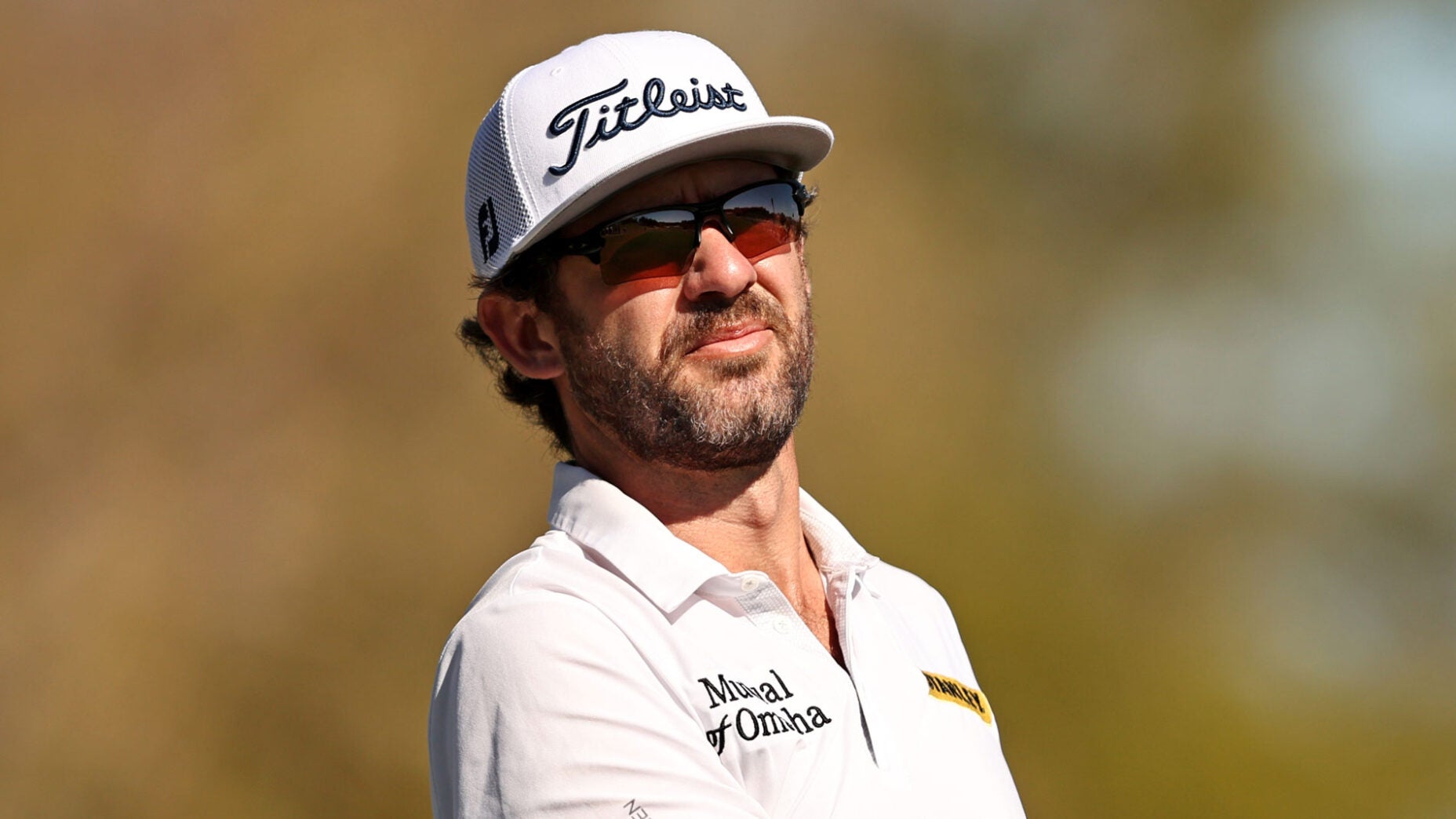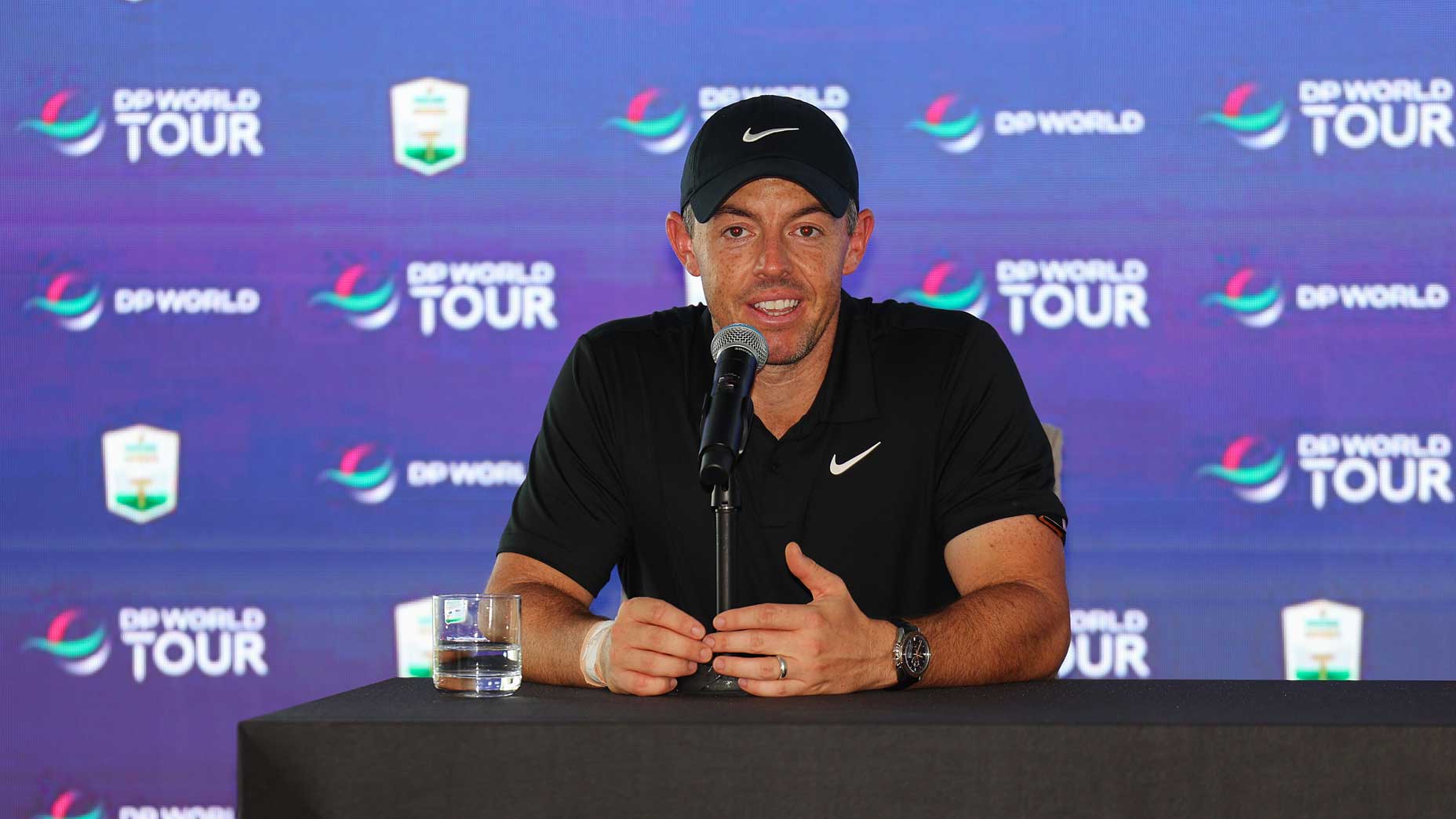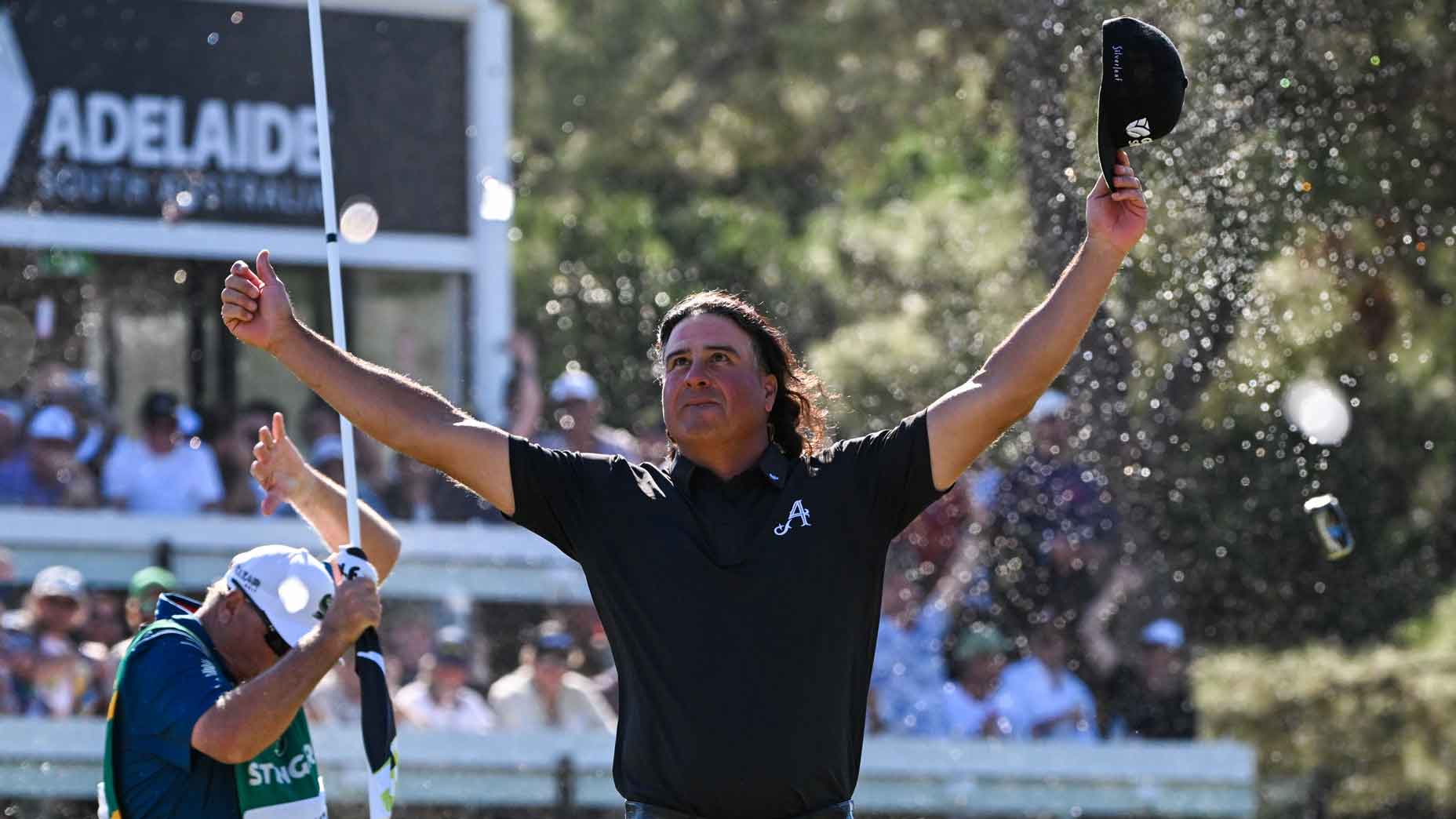Tour winner rebukes ‘elitist’ pros, inequity for ‘normal guys’ fighting for jobs

Lanto Griffin earlier this year.
getty images
In these wildly uncertain times in the upper ranks of men’s professional golf, no one seems to know what to think, say or do: tour administrators, sponsors, media, fans and, yes, the players.
Perhaps especially the players, who have been stuck for months in an unsettling wait-and-see limbo.
With about six weeks remaining until the stated deadline for the PGA Tour and Saudi Arabia’s Public Investment Fund, which backs LIV Golf, to announce their go-forward (or go-backward?) plans, and with a handful of other interested investors circling Ponte Vedra like hungry vultures, who knows what’s in store for the future of the Tour? About the only guarantee is that the richest players stand to get richer. But who will fund those payouts, what tournaments will survive and how fields will be formed remain open questions. Then, earlier this week, came yet more uncertainty when Rory McIlroy, the Tour’s poster boy, unexpectedly stepped down from the Tour Policy Board, citing an overtaxed schedule.
In years past, players may not have spent too much time sweating who might fill such a vacancy. But with the future of the Tour in the balance, the Tour’s player directors — currently Patrick Cantlay, Charley Hoffman, Peter Malnati, Webb Simpson and Tiger Woods — have never held more sway or responsibility. This doesn’t mean it’s a job every player necessarily wants (Jon Rahm, for one, has no interest), but it is one in which many players now have more of a vested interest, the Tour’s middle class especially.
This point came across forcefully in a remarkably candid interview Lanto Griffin gave Golfweek’s Adam Schupak at the RSM Classic this week. Griffin, who is 35, represents the Tour’s proletariat. Since joining the Tour in 2017-18, he has racked up a win, 10 top 10s and more than $7 million in earnings, but is a long way from enjoying entrée into the coveted signature events. Griffin is 174th in the FedEx Cup Fall standings, but because he’s playing on a major medical exemption, he still has several more starts after this week to earn full status for 2024.
His idea of an effective player director? For starters, someone who listens to all players.
“There are certain guys out here among the top players who won’t give you the time of day and then there are guys like Rory who will,” Griffin told Golfweek. “I talked to him for about 30 minutes at Players and then again in Canada, which is really nice of him, and he listens. There are some guys out here who wouldn’t do it. Justin Thomas wouldn’t do it. Collin Morikawa wouldn’t. I feel like there is an elitist group. Rory feels like he can listen in and understand where we’re coming from, too. Someone like that with personality. Brandt Snedeker just to throw a name out. Someone who is respected by everybody but also has some perspective and isn’t just making $40 million to $50 million off the course and is going to be guaranteed to be in every elevated event.”
It’s not often you hear Tour pros call out their peers by name, and Griffin wasn’t done. He also takes issue with the structure of the FedEx Cup, which he believes doles out points inequitably, making it unfairly difficult for mid- and lower-tier players to climb the ladder.
“Give them all the money they want, but when you start giving them the points, I’ve got a problem with that,” Griffin told Golfweek of the Tour’s top 50. “Do you know what fifth in an elevated event next year makes in FedEx Cup points? Three-hundred. It’s 110 for a normal event. So I go play Torrey Pines with 156 players and a cut, and Rory goes to L.A. the next week in a 78-players, no-cut field, and he gets nearly three times the points for the same finish. How is one going to compete with that? The guys that are making the decision are obviously going to look out for themselves. That’s where there is a disconnect for guys in my position, the normal guys. So having someone who will listen and not be only concerned about the top 10.”
Malnati, who is 36, is one of those players. In fact, he has had an eerily similar career to Griffin’s, compiling one win, 11 top 10s and $7.8 million in earnings. When the signature (née elevated) structure was first announced last year, Malnati bitterly opposed it, fearing it boxed out the Tour’s worker bees. But he was since come around to it, writing in a March 2023 memo to his fellow players that “the new model will make the PGA Tour stronger, more competitive, more marketable, and more rewarding for every single member.”
Griffin, though, has remained unconvinced. He can’t get past how FedEx points are divvied up.
“Rory shouldn’t have an advantage over me in the FedEx Cup,” Griffin told Golfweek. “If he wants $20 million purses and $100 million PIP money, take it. We don’t give a s–t. I told Rory this. I said, ‘Beginning of the year, what’s your goal? Win the FedEx Cup, win majors, win three, four times? Do you know what 70 percent of the guys out here, there main goal is? To keep their job.’ He said, ‘Fair enough.’ We care about money — that comes with good play — but we’re more worried about keeping our job. Every year there’s five to 10 really good players that go back to Korn Ferry Tour that have been out here for a long time. Do you think Rory is worried about that? JT had the worst year he’ll ever have this year and finished 71st. That was a pretty great year for me last year. I had surgery and I was hurt but still managed four top-10s. To have the deck stacked against us — we’re losing points, money, starts, it feels like, who’s making these decisions?
Griffin said he has grown so disenchanted with the direction of the Tour that he won’t even open correspondences from Tour HQ anymore.
“It’s so emotional,” he said. “Them changing the FedEx Cup, changing the points, changing the elevated events, changing all this stuff in the middle of the season. It’s BS,” he said. Griffin added: “It’s sad because the dream growing up was to play on the PGA Tour. It doesn’t feel that prestigious anymore. It feels more like a job. It’s become so politicized. It’s been frustrating for a lot of guys out here. Just the image of what we’re doing, but not much else we can do but show up and do our job and see if we can play well.”
You can read the entirety of the Golfweek interview here.






